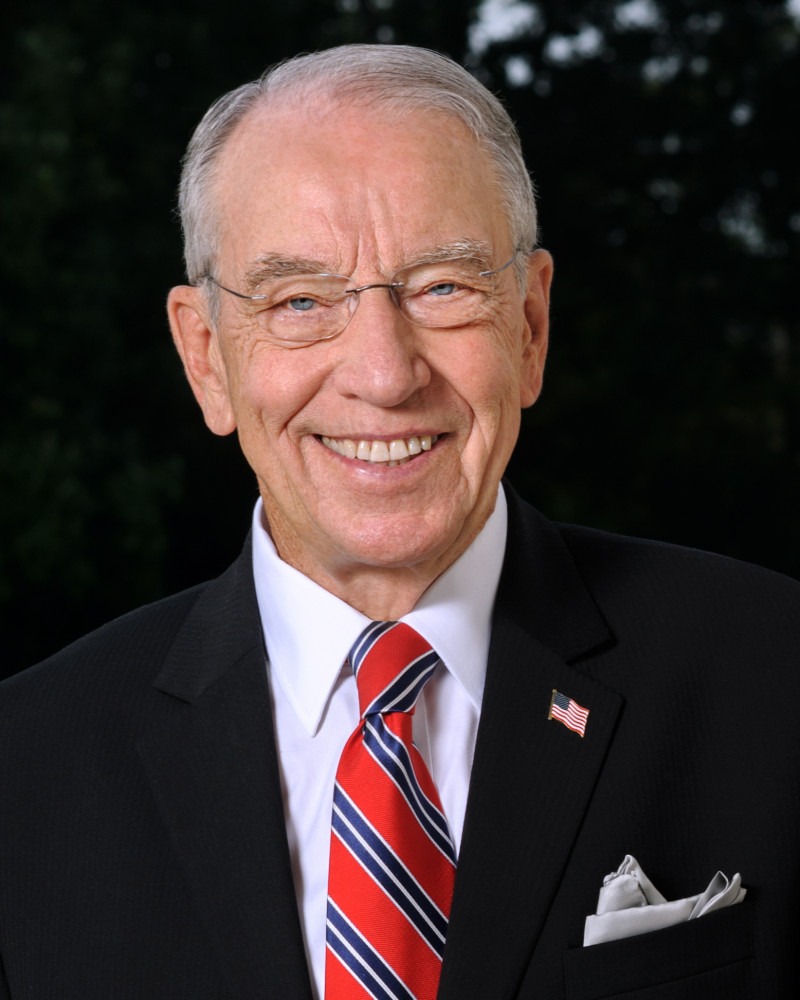
Bipartisan legislation introduced on Thursday by U.S. Sens. Chuck Grassley (R-IA) and Patrick Leahy (D-VT) would provide a five-year reauthorization of the EB-5 Regional Center Program, which is set to expire in June, and lays out potential integrity measures designed to prevent program fraud and abuse.
“It’s no secret that the EB-5 Regional Center Program has been a mess for years. Foreign investors exploited the program to get fast-tracked green cards, domestic developers exploited foreign investors to get fast cash for bogus projects, and government officials picked winners and losers to score political favor,” said Grassley, ranking member of the U.S. Senate Judiciary Committee. “This has got to change.”
The senator joined Leahy, a senior member and former chairman of the Judiciary Committee, to offer the EB-5 Reform and Integrity Act of 2021, which includes significant integrity reforms to protect against fraud and national security weaknesses within the program, promote program integrity, and improve oversight of the program, according to a bill summary provided by congressional staff.
The current program, which is overseen by U.S. Citizenship and Immigration Services (USCIS) at the U.S. Department of Homeland Security (DHS), provides a green card to individuals who invest $1.8 million in a business in the United States that creates 10 jobs. The investment amount is lowered to $900,000 in high unemployment and rural areas — areas that typically struggle to attract development and retain jobs. The regional center program allows multiple EB-5 investors to pool capital, which the senators said can generate significant investment. Regional centers are responsible for overseeing EB-5 projects.
Since September 2015, authorization for the program has generally been tied to spending vehicles. However, it was decoupled from appropriations during negotiations over the fiscal year 2021 omnibus appropriations bill in December 2020, and it is currently set to expire on June 30, 2021.
Although successful since its inception in the early 1990s, the EB-5 program also has been plagued by fraud and abuse. An August 2015 report released by the U.S. Government Accountability Office, for example, highlighted the lack of rigorous oversight of the EB-5 Regional Center Program, specifically how the agency fails to analyze risks, continuously assess fraud, and accurately measure economic benefits.
The report, entitled Immigrant Investor Program: Additional Actions Needed to Better Assess Fraud Risks and Report Economic Benefits, examined efforts by USCIS to detect and mitigate fraud and other related risks, including in conjunction with other agencies. The report also validated that the program is inherently susceptible to fraud schemes, and that the agency lacks the ability to determine if investor funds are lawfully obtained.
Citing such data, Grassley and Leahy in 2019 helped convince the Trump administration to adopt USCIS regulations to raise the minimum investment amounts; revise the standards for certain targeted employment area (TEA) designations; give the agency responsibility for directly managing TEA designations; clarify USCIS procedures for the removal of conditions on permanent residence; and allow EB-5 petitioners to retain their priority date under certain circumstances.
“I have partnered with Senator Grassley for years to clean up the EB-5 program,” Leahy said on Thursday. “We successfully worked with both the Obama and Trump administrations to take important administrative steps to promote integrity and curtail abuses that have plagued the program.”
But, he added, DHS “cannot fix all of the EB-5 program’s flaws on its own.”
Both he and Grassley think that Congress must act decisively “to comprehensively address the fraud and other vulnerabilities that have come to define the EB-5 program,” Leahy said.
Toward that goal, the EB-5 Reform and Integrity Act of 2021 would require regional centers to have policies and procedures in place to protect against fraud; requires that regional centers file proposed EB-5 project business plans with DHS, including offering documents and marketing materials; requires more disclosures to investors regarding material business risks and conflicts of interest in EB-5 projects; and requires DHS to audit regional centers every five years and to perform site visits to EB-5 projects, among numerous other provisions, according to the text of the bill.
“The Obama and Trump administrations took important steps to restore incentives for investment in rural and truly underserved areas, but Congress must act to fix other flaws that invite fraud and abuse,” said Grassley. “Our bill corrects the many defects in the current program and improves accountability so that it functions as Congress intended.”
“Absent these fixes, this program should not be allowed to continue,” said Grassley, who joined Leahy during the previous session of Congress to introduce similar legislation that ultimately expired before the start of the 117th Congress.
The reintroduced measure has garnered support from Invest in the USA (IIUSA), the national industry trade association for the EB-5 Regional Center Program.
“Members of Congress and the EB-5 community have agreed for years that the Regional Center Program needs integrity reforms to achieve long-term reauthorization, to protect good-faith immigrant investors; to support good-faith regional centers, and to provide appropriate oversight that still allows the Program to prosper,” IIUSA Executive Director Aaron Grau said today. “This bill does all four.”
Sen. Grassley said he appreciated IIUSA’s support of the bill. “And I hope, with IIUSA’s support, that we are finally able to get this long-term reauthorization and reform package across the finish line,” he said.




